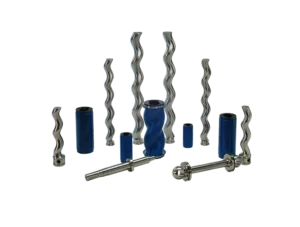
Is recycled or reclaimed water good for cooling towers?
When it comes to running your facility’s cooling towers, you already have a lot on your plate. However, utilizing recycled water in your towers is a possibility you may not have considered—or are only beginning to examine. Many people believe that recycled water is less expensive since it has previously been used.
However, not utilizing fresh water may have its own consequences for your equipment and tower safety. To understand how recycled water works and whether or not it should be used, you must first understand where it originates from and how cooling towers manage it.
What is Recycled Water?
In broad strokes, recycled water might be water that was previously treated as wastewater or rainwater collected from roof drains and held in a tank. Recycled water is disinfected after going through filtration and other treatment stages. The method captures suspended particulates in the water and kills germs that may have entered through waste products, roof drains, and other sources.
When deciding whether or not to utilize recycled water in your cooling tower, make sure you know where it comes from and what operations have already been performed on it.
industrial valve manufacturing process
Industrial valve manufacturing involves precision engineering to create components that regulate, control, and direct the flow of fluids or gases within industrial systems. This process includes design, casting or forging of materials like steel or alloys, machining, assembly, testing, and final inspection to ensure quality and functionality.
Is it more cost effective to use Recycled Water?
Yes, recycled water is frequently just 35 percent to 55 percent the price of municipally provided fresh water. However, the cost depends on where the water originates from; facilities that directly pump fresh water from lakes and streams do not save as much money, not only because of the higher expense of pumping equipment, but also because of the added load of having to cleanse the water themselves. Buildings that use recycled water from the municipal supply or roof drains will save the most money, especially when the cost of new water rises.
How does recycled water affect Water Treatment?
Whether and to what degree further water treatment is required beyond what is currently in place for fresh water depends on where the water comes from and its general quality before it reaches your facility. High quantities of ammonia in recycled water, for example, might cause substantial damage to a cooling tower’s heat exchange tubes, which are commonly composed of copper or zinc. This may necessitate extra treatment, but if just one or two of these problems exist, the cost reductions may offset the requirement for new water treatment methods.
Is the cooling tower more at risk from recycled water damage?
Typically, no, as long as your water treatment is done properly. In reality, many facilities that use recycled water report improved cooling tower performance, which is frequently related to enhanced water treatment monitoring.
However, accepting recycled water without first assessing its particular treatment requirements might cause your machinery to quickly degrade or foul. Your cooling tower will not be any more vulnerable to harm from recycled water than it would be if you used fresh water if you do your homework.
Trust an experienced water treatment company to assist you with your cooling tower water issues!
If you’re debating whether or not utilizing recycled water in your cooling towers is a smart idea, or if it could cause more issues and costs than it’s worth, you should consult an expert.
Netsol Water’s experts set the bar for water treatment, and we’d be pleased to explain what your local recycled water looks like and what extra treatment it could require. Contact us PMV phone at +86 13717116442 or contact us email at info@pumpvv.com to set up a consultation to see whether adding recycled water into your cooling tower might save you money in the long run.
